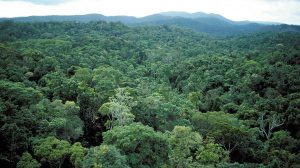According to latest statement,The Programme for the Endorsement of Forest Certification (PEFC) has received the highest rating against the ASEAN Guidelines on Promoting Responsible Investment in Food, Agriculture and Forestry (ASEAN RAI) which was launched on 3 November 2020.
The 10 Guidelines of the ASEAN RAI are part of a broad range of initiatives aiming to ensure that investments in the food, agriculture and forestry (FAF) sectors in the ASEAN region comply with international frameworks, yet are regionally relevant and contextualised.
Twelve selected existing FAF industry standards and certifications were assessed against the 10 Guidelines. In the forestry industry sector, PEFC was rated 95% while the Forest Stewardship Council (FSC) 90% – PEFC was rated higher due to its regional approach. The PEFC Sustainable Forest Management principles were used for this mapping exercise where the first five principles aligned with the ASEAN RAI Guidelines on food nutrition, economic development, natural resources, climate change and rule of law and governance. The sixth PEFC principle (maintenance or appropriate enhancement of socio-economic functions and conditions) emphasises economic development, support to marginalised populations (women, young people, indigenous people) as well as tenure rights and data collection. A partial match was observed with Guideline 10 (concerning regional approaches) when two of the six PEFC principles include specific references to regional policy and approaches. Overall, the PEFC Sustainable Forest Management principles aligned with 9.5 out of 10 of the ASEAN RAI Guidelines.
With the rating, organisations which are already adhering to these selected standards such as the Malaysian Timber Certification Council (MTCC) could easily demonstrate alignment with the ASEAN RAI. MTCC is the National Governing Body for the Malaysian Timber Certification Scheme (MTCS), an initiative to promote the implementation of sustainable forest management which has been endorsed by PEFC since 2009. MTCC plays the role as facilitator in the development of certification standards, ensuring that the development is done in accordance with globally-accepted best practices that guarantees a transparent, independent and inclusive process. MTCC is committed to ensure that the MTCS which is a groundbreaker scheme for tropical forest certification scheme in Asia, continues to meet and comply with the PEFC sustainability benchmarks.
Guides FAF Investors
The ASEAN RAI Guidelines were grounded in the Committee on World Food Security’s Principles for Responsible Investment in Agriculture and Food Systems (CFSRAI), which were endorsed in Rome in October 2015. The ASEAN Ministers on Agriculture and Forestry (AMAF) adopted the ASEAN RAI in October 2018 following a nine-month multi-stakeholder consultation process led by Grow Asia – a unique multi-stakeholder partnership platform that brings together farmers, governments, private sector, NGOs and other stakeholders in Southeast Asia to lift the productivity, profitability and environmental sustainability of smallholder agriculture in the region.
The Guidelines lead agribusiness, governments, financial institutions and producers on investments to an existing landscape of voluntary sustainability standards and certifications that help guide responsible practices along value chains in ASEAN’s growing FAF sectors.
The Guidelines are linked to the United Nations Sustainable Development Goals (SDGs), specifically, Goal 1 (to end poverty), Goal 2 (to end hunger), Goal 5 (to end all forms of discrimination against women and girls), Goal 8 (to promote decent work and economic growth), Goal 10 (to reduce inequality within and among countries), Goal 12 (to ensure sustainable consumption and production patterns), Goal 13 (to take urgent action to combat climate change and its impacts), Goal 14 (to conserve and sustainably use the oceans, seas and marine resources) and Goal 15 (to protect and restore ecosystems and life on land).

